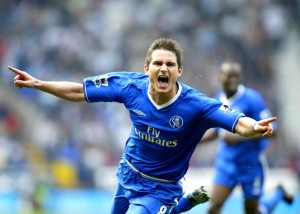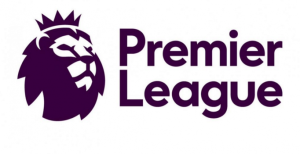Premier League at 25: How Do ex-Pros View the Modern Game?
As the Premier League celebrates its twenty-five year anniversary, there can be no doubt that football has changed irrecoverably over that period. It seems that the modern game is all about money, and the grip of the money giants means that plucky upstarts like Nottingham Forest, Aston Villa and Blackburn Rovers can no longer hope to challenge the elite as they have in the past (we’ll excuse Leicester City’s 2015-16 EPL win as an anomaly).
The question is, how do ex-Pros view the cash-cow that modern football has become? Are they resentful of the money that current pros earn – after all, Middlesbrough’s Britt Assombalonga, a player who’s never even played in the top flight, is reportedly on £40,000 a week.
In a recent Emile Heskey interview at the fan-created site AskFans.co.uk, the former Leicester City, Liverpool and England striker gave his thoughts. “The game’s quicker, people are looking after their bodies better, and there are certain more athletes around then when I first started,” said Heskey. He also cited Leicester’s Jamie Vardy and new Manchester United record signing Romelu Lakuku as modern-day players he would like to have played with.
One player who has seen it all is George Haigh. You’ve probably not heard of him, but currently, at a staggering one hundred and two years of age, Haigh is the oldest surviving professional footballer, having made his debut for Stockport County in 1936. He doesn’t actually see much difference between the modern era and sepia-tinged times. “I would’ve found it easy playing today; centre-half would’ve been dead easy for me knowing what I know now, I’d have been an international! And the equipment is so much better; the boots were so heavy in my day, especially when it was wet. In the modern era, David Beckham is probably the one who stands out, I’d like to have taken him on.”
The ex-Manchester legend Gary Neville enjoyed an amazingly successful career, spending almost two decades at Old Trafford before retiring in 2011. In 2014 Neville acknowledged changes in the modern game, and courted controversy when he noted the growth of ‘simulation’ (i.e. cheating) and explained that in his opinion, it should be tolerated as part and parcel of modern football. This is of course a far cry from the 1970s when ‘cheating foreign types’ were looked upon with complete disdain by British football fans.

Retired star Frank Lampard believes the rush to sign the young stars has made money more of a focus than sustained success.
Another former England legend, Frank Lampard, thinks that the money in the modern game is ruining young players. “Clubs are desperate to sign the best young talent,” said Lampard in an interview with the Times, “so money is thrown at them, they get a bit of fame, and it’s human nature that some take their eye off the ball in terms of training and discipline. Money creates an atmosphere where very young kids think they’ve made it.” Perhaps one example of this is Ravel Morrison, feted as a future superstar and given excessive riches, only to see his career collapse (he spent most of 2016-17 on loan at second-tier QPR from Lazio and was only selected five times).
There’s no doubt that football continues to evolve, but where is it now going to go? It will be interesting in say, ten years time, to interview today’s mega-rich pro-footballers, and gauge their opinions on football, the 2027 version.

http://www.cfrmagazine.com/2017/08/new-research-reveals-best-time-to-have.html?m=1